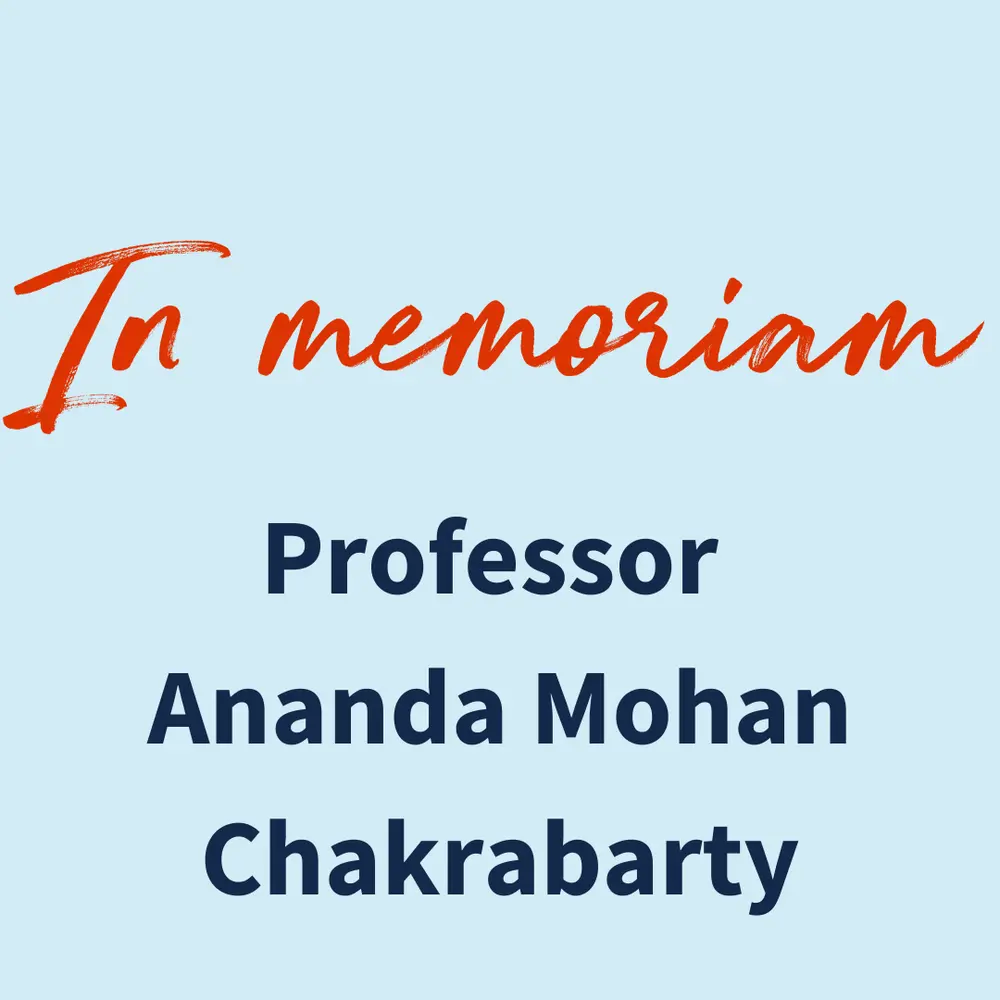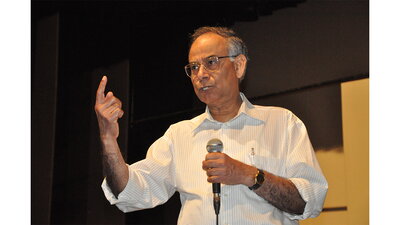
Faculty in the University of Illinois School of Molecular and Cellular Biology and Department of Biochemistry are remembering the late Professor Ananda Mohan Chakrabarty, who passed away on July 10, 2020, in Chicago.
After completing his PhD at Calcutta University in 1965, Chakrabarty, known by colleagues around the world as AMC or Al, came to the University of Illinois Urbana-Champaign to conduct postdoctoral research with the celebrated biochemistry professor Irwin “Gunny” Gunsalus. Gunny was elected to the National Academy of Sciences the same year AMC arrived in his lab. During the six postdoctoral years AMC spent with Gunny, he performed ground-breaking research that set the course for his scientific life.
“Al was a giant in microbiology,” said Professor Steve Sligar, biochemist and former director of the School of MCB. Sligar trained with Gunny Gunsalus and knew AMC. “In Gunny’s lab, Al did pioneering work on metabolic plasmids which explained how bacteria can adapt to so many growth conditions.”
Professor Sligar pointed to one of AMC’s early papers in PNAS in which he studied the CAM plasmid that allows the soil Pseudomonas to metabolize camphor. AMC showed that these plasmids are freely exchanged, giving rise to phenotypes like drug resistance, a huge concept at that time, Sligar said. AMC then went on to author with Gunsalus a series of seminal papers published in PNAS between 1968 and 1973. One paper in particular showed that the enzymes responsible for the oxidation of the hydrocarbon n-octane in Pseudomonas are encoded by genes carried on a plasmid. This paper laid the foundation for AMC’s later work in General Electric, which led to the creation of the Pseudomonas bacteria capable of utilizing fuel oil as a nutrient.
In 1980, AMC's genetically modified Pseudomonas bacteria became the first genetically engineered organism to gain a patent, following the Supreme Court decision in Diamond vs. Chakrabarty. After leaving General Electric, AMC became a Distinguished Professor of Microbiology and Immunology at the University of Illinois Chicago College of Medicine, where he continued to pioneer biotechnology research and explore therapeutic potential for bacterial proteins.

“Because the University of Illinois Urbana-Champaign played such a pivotal and valuable role in the formative years of his scientific life, AMC’s connection to our university remained strong,” said Milan Bagchi, the Deborah Paul Endowed Professor of Molecular and Cellular Biology and director of the School of MCB. “He gave back to the UIUC community by co-chairing with Professor Sligar the fundraising campaign to establish the I.C. Gunsalus Professorship. It was his way of paying tribute to his mentor and making sure that the legacy of the wonderful science he did with Gunny lives on,” Bagchi said.
“Al was a warm, selfless and embracing man. He will be missed,” Sligar added.
On behalf of the university community, faculty and staff with the School of Molecular and Cellular Biology and Department of Biochemistry offer their deepest condolences to AMC’s wife, Krishna, and their family.